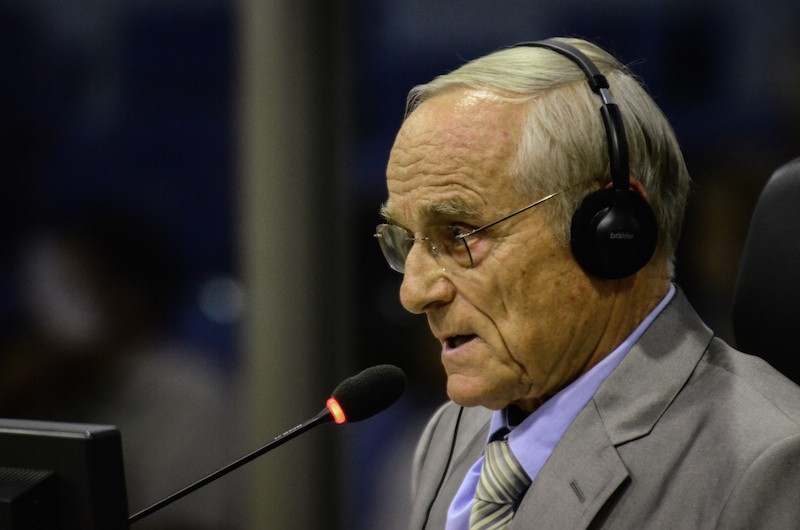French historian Henri Locard took aim at the Documentation Center of Cambodia (DC-Cam) while testifying at the Khmer Rouge tribunal on Thursday, criticizing the center’s high-profile director, Youk Chhang, for rejecting offers of research assistance only because he was “not very fond” of Frenchmen.
During preliminary questioning from the Trial Chamber, the 77-year-old academic, who is appearing as an expert witness in Case 002—in which the regime’s second-in-command, Nuon Chea, and head of state, Khieu Samphan, are on trial for crimes including genocide—said DC-Cam had spent too much time looking at killing pits in the 1990s. Instead, Mr. Locard said he believed the focus should have shifted to the hundreds of Khmer Rouge prisons scattered across the countryside.

“DC-Cam wanted to investigate the pits, but I said the pits had already been investigated by the [People’s Republic of Kampuchea] period, so it’s very easy to investigate, to research what has already been researched,” Mr. Locard said.
“Much more interesting would be what has been discovered by David Hawk, an American expert, who said there’s not just S-21, there’s not just Tuol Sleng, but there are Tuol Slengs all over the country.”
Mr. Locard said his offers and advice were both ignored by Mr. Chhang, for reasons the Frenchman claimed were due to his nationality.
“Basically, DC-Cam rejected my offer of services. First, because I was a Frenchman, and DC-Cam and its director is not very fond of French people, apparently, and doesn’t know French; he was American- educated,” Mr. Locard said.
“I came with my pockets empty, I came with no money. My experience of interviewing people and of the country didn’t seem to weigh very much for him, so I continued alone,” he added.
The historian also criticized DC-Cam for not allowing him more access to its archives—again, linking it to his nationality.
“I regret to be saying this in public, but DC-Cam is not very open to the public, especially the French public, and especially no one can see the originals of their archives,” Mr. Locard said, adding that he had to obtain documents from the organization “through the back door.”
Asked about the historian’s accusations, Mr. Chhang responded by email: “As the French would say… pour la liberte”
“The Center needs to earn its own freedom and independence to search for the truth,” he added, attaching a photograph of himself that he noted had been taken by a French woman in Paris.
Mr. Locard also took aim at the tribunal’s field research and what he perceived as a disproportionate emphasis on Phnom Penh’s S-21 prison, which was the focus of the court’s first case, as well as part of the current one.
“To my somewhat disappointment, I thought the tribunal has not done enough field research and enough field research of this principle, ‘murder of extermination,’” Mr. Locard said.
“It’s a little bit like if you study the Nazi regime. You concentrate on Auschwitz, Auschwitz, Auschwitz, and nothing but Auschwitz. And yes, but what about the other concentration camps all over Europe? This is a little bit like how I feel here.”




